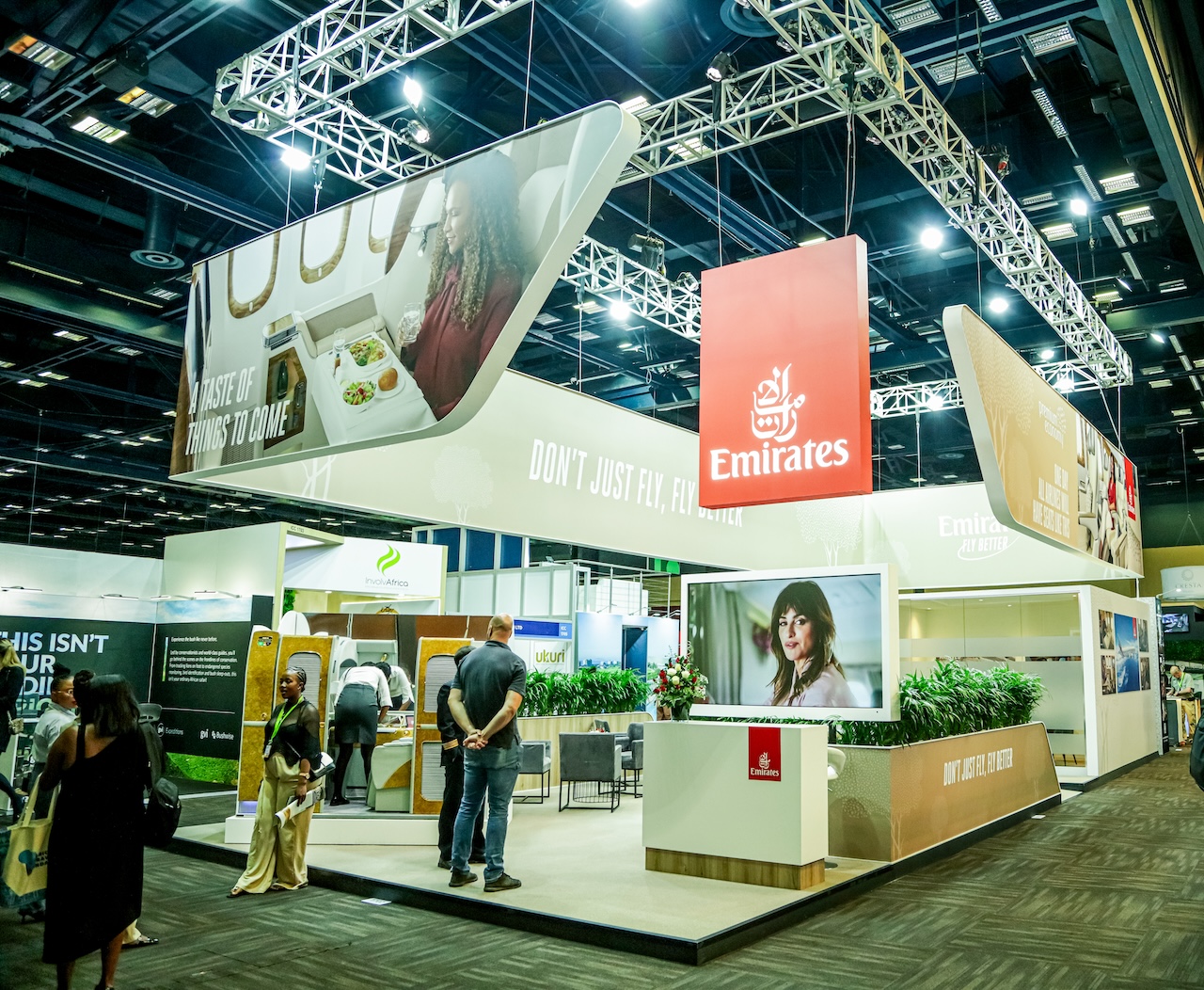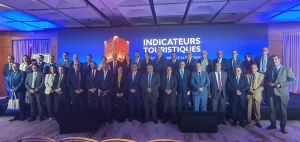In the dynamic global aviation landscape, Emirates Airline has distinguished itself for its resilience and adaptability, particularly in the Southern African region.
With a strategic approach that balances consolidation, growth, and a deep understanding of local preferences, Emirates has navigated the challenges presented by the COVID-19 pandemic while positioning itself for continued success in the post-pandemic era, according to a representative of the airline giant at the ongoing Africa’s Travel Indaba.
Emirates’ operations in Southern Africa have undergone significant changes from pre-pandemic to post-pandemic times. Prior to the pandemic, the airline operated 49 weekly flights, offering over 100,000 seats per month to South Africa. Additionally, Emirates served online points like Zimbabwe and Zambia, supporting its South African operations with independent flights to these countries. However, in the post-pandemic period, Emirates has shifted its priorities.
In an interview, the Regional Manager for Southern Africa of Emirates, Afzal Parambil, explained, “Pre-pandemic, our focus was on expansion, but post-pandemic, our priority changed. It wasn’t about growing new destinations; instead, it was about consolidating and bringing back our original network, which was critical for us.”

The onset of the COVID-19 pandemic prompted Emirates, like many other airlines, to reassess its priorities. Faced with travel restrictions, reduced demand, and operational challenges, the airline shifted its focus from expansion to consolidation. Facing shortages of aircraft and logistical hurdles, Emirates prioritized rebuilding its original network, striving to restore its pre-pandemic operations globally and in Southern Africa.
Despite the challenges, Emirates has made significant strides in its post-pandemic recovery efforts. While not fully restoring its pre-COVID operations, the airline has almost reached its previous capacity, a representative noted.
“In the South African context, we are currently operating 42 weekly flights, just one flight short of our pre-pandemic frequency. Our aim is not only to meet but also to surpass the pre-COVID capacity and frequencies, with new aircraft joining our global fleet starting from August, such as the A350.” Afzal Parambil said.
Emirates’ regional ambitions extend beyond South Africa, encompassing countries like Mozambique, Botswana, and Namibia. Through strategic partnerships, Emirates connects these countries to its global network, recognizing their potential as both source markets and tourist destinations. With Africa hailed as a growth region with untapped potential, Emirates is poised to capitalize on emerging opportunities while addressing the unique needs of diverse markets.
Speaking about these partnerships, the Regional Manager for Southern Africa stated, “Our interline and codeshare partnerships with the likes of South Africa Airlines, FlySafair, Cemair and Airlink enables us to connect passengers from regional African points to the rest of the Emirates network. Africa, in general, is a growth region, and we believe in exploring destinations beyond traditional routes through partnerships.”

At the heart of Emirates’ success in Southern Africa lies its deep understanding of local preferences and cultures.
You can only be a preferred airline if you understand the local culture and preferences. When flying with Emirates, passengers experience the flavours of the destination even before reaching it, with local produce sourced for onboard service. Emirates sources ingredients from local suppliers, including Rooibos tea, local artisan cheeses, tasty ostrich meat, lamb, beef, and hake. The wine list features an assortment of South African wines, such as Ken Forrester, Porseleinberg, Klein Constantia, Waterkloof, and Boekenhoutskloof, among others.
Regionally inspired menus include Durban classic Lamb Bunny Chow with traditional garnishes, hearty Bobotie, and decadent Malva pudding. We have crew members from over 170 nationalities working for Emirates, so if you are flying on the South African route, you are most likely to be welcomed by a South African crew member. This enables passengers to experience South African culture before they even touch down at their destination, Afzal Parambil emphasized.
According to the representative, participating in events like Indaba is crucial for Emirates to engage with stakeholders across the travel ecosystem, gather insights, and adapt strategies for growth.
“Indaba is critical for us to interact with stakeholders, including hoteliers, tour operators, media, and other industry partners. These interactions provide valuable insights that shape our strategies for the region.”
Emirates’ strategic approach in Southern Africa underscores its commitment to adaptability, resilience, and understanding of local markets, positioning the airline for sustained success in the evolving aviation landscape.
Africa’s Travel Indaba is the leading travel trade show in Africa, owned by South African Tourism, with the specific objective of creating market access for the vast array of African tourism products and businesses.
The trade show exists to provide the ideal platform for African tourism exhibitors to showcase their offerings to international and local buyers, destination marketing companies, and leisure tourism services partners. It is the most formidable platform on the continent for you to meet face-to-face with the most influential buyers in the world, and to gain access to Africa’s excellence and its endless possibilities. These are the business opportunities and quality connections that will shape Africa’s tomorrow.
The 2024 edition of Africa’s Travel Indaba took place in Durban, KwaZulu Natal Province from 13th to 16th May 2024.







